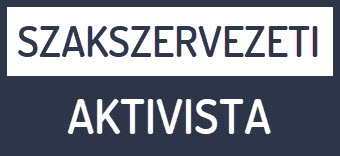2023. május 17-én került megrendezésre a Friedrich-Ebert-Stiftung (FES) és az Érdekvédelmi Tanácsadó Szolgáltatás Egyesület (ÉTOSZ) közös eseménye „Átalakuló munkaerőpiac? címen. Az eseménynek az adott különleges aktualitást, hogy előkészületben van a vendégmunkások magyarországi foglalkoztatásáról szóló törvény, melynek célja az Európai Unión kívülről származó vendégmunkás-foglalkoztatás törvényi szabályzása.
Az adott helyzet szükségessé teszi a téma többoldalú megközelítését, ami háromnegyed részben sikerült is: jelen voltak a tudomány, a munkáltatói és a munkavállalói oldal, viszont a kormányzati oldal nem tett eleget a meghívásnak. A tudományos megközelítés a kormányzati intézkedések munkaerő-piaci indokoltságáról, valamint azok lehetséges következményeiről szólt. Mivel a magyarországi munkaerőhiány egyre drámaibb méreteket ölt, a kormány 2030-ig közel 500 000, harmadik országból származó migráns munkavállalóval számol. A munkáltatói oldal a munkavállalók toborzásáról, kiválasztásának és kölcsönbe adásának gyakorlatáról számolt be, vázolva a küldő országok egymástól eltérő gyakorlatát, többek között a Fülöp-Szigetek és Kirgizisztán példájának bemutatásával. Munkáltatói szempontból a 3. országbeli munkavállalók (munkáltatói nyelvezetben „munkaerő”) költségesebbek a helyi munkavállalóknál, egyenként 2 évre szóló alkalmazásuk mégis szükséges a gazdasági fejlődés tekintetében.

A munkavállalói érdekképviselet az emberi szempontokat hangsúlyozta: a munkáltatónak jól jön, hogy a migráns munkavállalók szinte tolonganak a túlóráért, de mi mást tehetnének, vagy nézik a szálláson a négy falat, vagy több pénzt keresnek, amit hazaküldenek a családjuknak. A helyzet viszonylag új, de már jelen vannak a sztereotípiák: a magyar munkavállalók úgymond lusták, mert munkaidő után hazamennek a családjukhoz, bezzeg a fülöp-szigetekiek szorgalmasok, mert túlóráznak. Persze ők is hazamennek a családjukhoz, csak két év után.
Regionális és európai kitekintést is nyújtott a konferencia, mivel szó volt a visegrádi négyek gyakorlatáról és konkrétan az elektromobilitásra való globális átállásról is, mely szükségessé teszi a migráns munkavállalók Magyarországi alkalmazását.

Még nyitott kérdés, mely technológia fogja hosszú távon helyettesíteni a belső égésű motorokat, de a magyar kormány az akkumulátorokra helyezi a hangsúlyt, melynek gyártásában kulcsszerep jut a 3. országbeli munkavállalóknak, akik hozzájárulnak az állami költségvetés bevételeihez, hiszen TB- és nyugdíjjárulékot is fizetnek, amit valószínűleg nem fognak igénybe venni.
A konferencia tanulsága egy, a gazdasági csoda éveiből származó német idézetben foglalható össze: „Vendégmunkásokat hívtunk, és emberek jöttek.”
Employment of migrant workers and the tasks of employees’ interest protection
On 17 May, 2023 a joint event of the Friedrich-Ebert-Stiftung (FES) and the Interest Protection Advisory Service Association (ÉTOSZ) took place under the title "Labour Market Transformation? The event was particularly topical due to the preparation of a law on the employment of guest workers in Hungary, which aims to regulate the employment of migrant workers from outside the European Union.
This situation calls for a multi-stakeholder approach to the issue, which was three-quarters successful: science, employers and employees were present, but the government did not respond to the invitation. The scientific approach was about the justification of government measures on the labour market and their possible consequences. As the labour shortage in Hungary is becoming more and more dramatic, the government expects nearly 500,000 migrant workers from third countries by 2030. The employers' side presented their recruitment, selection and temporary workers’ loan practices, outlining the different practices of sending countries, including the examples of the Philippines and Kyrgyzstan. From an employer's point of view, 3rd country workers (in employer parlance "labour") are more costly than local workers, yet their employment for 2 years each is necessary for economic development.

Workers' representatives stressed the human aspect: it is good for the employer that migrant workers are almost pushing for overtime, but what else can they do, either watch the four walls in the accommodation or earn more money to send home to their families. The situation is relatively new, but stereotypes are already present: Hungarian workers are said to be lazy because they go home to their families after working hours, while Filipinos are hard-working because they work overtime. Of course, they also go home to their families, but only after two years’ time.
The conference also provided a regional and European perspective, as the practices of the Visegrád Four were discussed, and specifically the global shift to electromobility, which requires the employment of migrant workers in Hungary.

It is still an open question which technology will replace internal combustion engines in the long term, but the Hungarian government is focusing on batteries, the production of which will be a mainly the task of workers from third countries, who will contribute to the state budget revenues by paying social security and pension contributions, which they are unlikely to use.
The lesson of the conference can be summed up in a German quote from the years of the economic miracle: "We invited guest workers and people have arrived."

Forrás: FES










